Some 75 years after the World Health Organization (WHO) was created to serve as the directing and coordinating authority in international health, the global health institutional architecture has become increasingly fragmented, confused, and inefficient. Many of the organisations, agencies and platforms have overlapping or closely aligned mandates, and operate in direct competition with each other for funding. COVID-19 has revealed many of the weaknesses of this system, but it also creates an opportunity to initiate once-in-a-generation reforms to consolidate and harmonise arrangements. Central to any reform efforts, however, must be a resolute, unwavering commitment to multilateralism, that is matched with practical, sensible measures to ensure a better prepared world for future health emergencies caused by pandemics, climate change, and biodiversity loss. The G7 as a group of democracies with strong historical ties to multilateralism must be at the forefront of such reforms and build inclusive alliances to uphold its values base.
Renewing the Global Health Architecture & Financing for the 21st Century
Adam Kamradt-Scott (European University Institute), Ilona Kickbusch (Global Health Centre at the Graduate Institute of International and Development Studies), Maike Voss (German Alliance on Climate Change and Health (KLUG)), Sophie Gepp (German Alliance on Climate Change and Health (KLUG))
Abstract
Authors
Adam Kamradt-Scott (European University Institute), Ilona Kickbusch (Global Health Centre at the Graduate Institute of International and Development Studies), Maike Voss (German Alliance on Climate Change and Health (KLUG)), Sophie Gepp (German Alliance on Climate Change and Health (KLUG))
Latest Policy Briefs
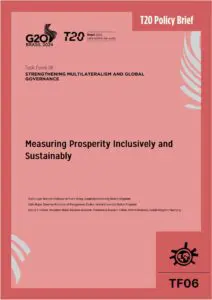
This Policy Brief advocates a thorough shift for the G20 from reliance on GDP as an economic yardstick of national performance and conventional measures of corporate profits as a ...
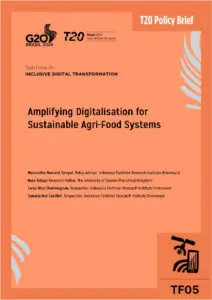
Ensuring food security emerges as a critical global imperative, particularly in the present and future uncertain geopolitical and economic circumstances. The contemporary agri-food systems heavily depend on international trade, ...
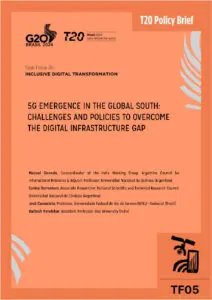
5G Emergence In The Global South: Challenges And Policies To Overcome The Digital Infrastructure Gap
Since 2016 G20 has focused on digital connectivity as an economic prosperity driver and the overcoming of multiple social inequalities. Currently, 5G is playing a prominent role in foreign ...
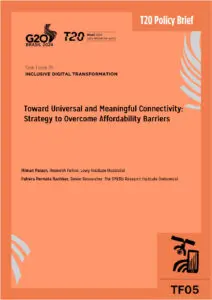
The challenge of digital affordability persists, with approximately 2.6 billion people, one-third of the global population, still lacking connectivity. While smartphones and broadband access are becoming more affordable in ...
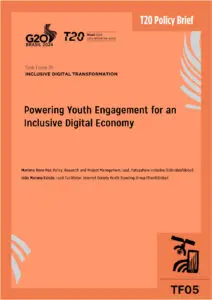
This policy brief advocates for youth meaningful engagement in digital economy policy and leverages youth’s perspectives on how to ensure that new digital technologies advance the Sustainable Development Goals ...
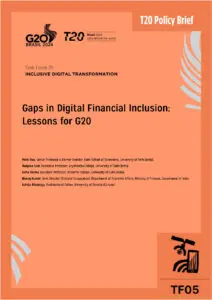
This policy brief aims to construct and analyze indices for access and usage dimensions of digital financial inclusion (DFI) in G20 economies, incorporating demographic characteristics such as gender, age, ...



